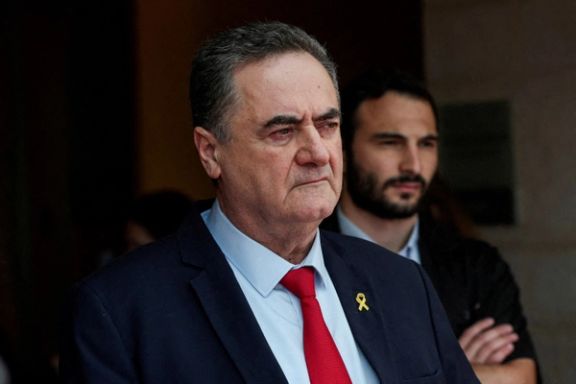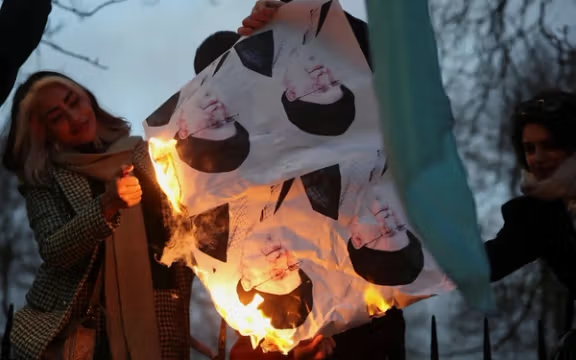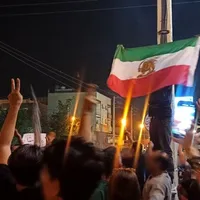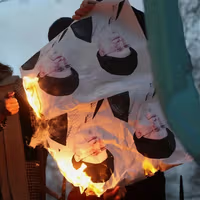Rezgar Beigzadeh Babamiri, a 47-year-old farmer and father of three from the Kurdish city of Bukan, was arrested in April 2023 in connection with the nationwide Woman Life Freedom protests sparked by the death in custody of 22-year old Mahsa Zhina Amini.
He was detained after providing aid and medical supplies to to the wounded protesters in the northwestern Iranian city of Bukan. However, his daughter now reveals a new charge leveled against him.
"Something deeply concerning has happened: a completely new accusation—‘plotting to assassinate the Supreme Leader’—was suddenly introduced at the time of the verdict," his daughter Zhino told Iran International on Thursday.
"This charge was never part of any formal investigation, court hearings, or case files, and my father only learned about it after the death sentence was issued," she added.
In addition to the new charge, Babamiri faces several others, including waging war against God, spreading corruption on earth, propaganda against the Islamic Republic, cooperation with hostile groups or governments, disturbing public order, and inciting people to protest.
Zhino said the death sentence was handed down by Judge Reza Najafzadeh at Branch 1 of the Urmia Revolutionary Court, which handles political and security-related cases.
According to the Kurdish human rights group Kurdpa, Najafzadeh has issued rulings in at least 34 cases involving political, civil, and religious defendants, including 11 death sentences—four of which have been carried out. The group has raised concerns about due process in his courtroom, citing limited access to legal representation and the use of confessions obtained during interrogation.
Responding to the charges brought against her father under Najafzadeh’s court, Zhino said: “These charges are politically motivated and grossly exaggerated. My father is a humanitarian who was simply helping the injured—something any decent person would do.”
She also referred to a separate case earlier this year, in which Urmia’s Criminal Court sentenced her father to 15 years in prison on charges of complicity in murder of a member of the Basij paramilitary force, alongside several protesters.
Rights groups have described that case as legally flawed, citing a lack of evidence, due process violations, and the use of forced confessions during interrogation.
“My father has endured severe physical and psychological torture in custody. These included beatings, threats, extended isolation, and psychological pressure—all aimed at forcing him to sign false confessions. These confessions, extracted under torture, have been used as primary evidence in his trial,” Zhino said.
In a letter from prison in April this year, Babamiri described being subject to severe torture including mock executions.
Facing what she described as an imminent threat to her father’s life, Zhino appealed to Western leaders and the international community to intervene:
“He’s not just a name or a number, he’s my dad. A kind, selfless man who raised me to believe in compassion and justice. Now he’s alone in a prison cell, sentenced to death for doing the right thing. Every day, I wake up with fear in my chest that they might take him from me. Please, help me keep him alive. Raise his name, demand transparency, and put pressure on the Iranian authorities. Your voice could be the difference between life and death.”
At least 98 people were executed in Iran last month, bringing the 2025 total to 612—up 119% from the same period in 2024, according to Norway-based rights group Iran Human Rights (IHR).
Six men were hanged for alleged espionage charges last month.
Activists and rights groups say Iranian authorities have intensified repression in the aftermath of the 12-day Israel–Iran war to suppress dissent and consolidate control.
“The Islamic Republic is at its weakest point in its history, and in order to survive, it needs to carry out more executions to intimidate what it sees as its greatest threat: the Iranian people,” IHR Director Mahmood Amiry-Moghaddam said in a statement.
Amnesty International has warned that following the Iran-Israel conflict, Iranian authorities have called for expedited trials and executions, raising concerns over arbitrary use of the death penalty.





